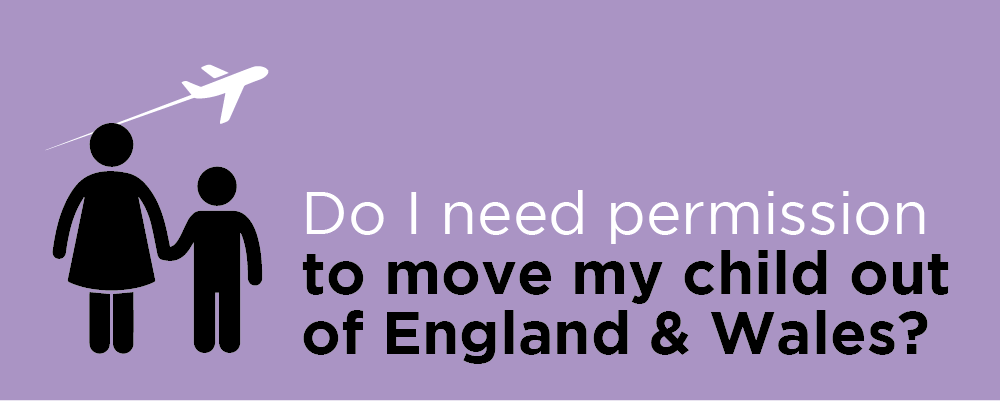- Basildon 01268244144
- Chelmsford 01245453800
- Colchester 01206217300
- London 020 4586 1280

Whether you are divorced or separated, going through a relationship break-up can leave you searching for a fresh start. For some that involves a house move and for others it can involve moving to another country altogether. This can cause problems if the other parent does not want to or cannot move to the same country.
I am thinking about relocating abroad, what should I do?
It goes without saying that relocating to another country with your child will have a significant impact on the amount of time they are able to spend with the other parent. Everyone’s individual circumstances are different and it is best to seek specialist legal advice as to your situation as early as possible.
As a starting point, it is important to note that the family courts do not apply a presumption that you can move with the children, even for a fresh start or to follow a career change. These decisions are not taken lightly by the Court.
Do I need permission to relocate the children abroad?
To move abroad with your child, a parent will need the consent of the other parent or permission of the court. This need for parental consent is due to the concept of ‘Parental Responsibility’. Mothers have Parental Responsibility automatically by virtue of giving birth to the child and fathers must acquire it. For example, if a father is named on the child’s birth certificate or is married to or later marries the mother, he will have Parental Responsibility. If none of the above apply, the father can also secure Parental Responsibility by entering into a Parental Responsibility Agreement with the mother or by applying to the court for a Parental Responsibility Order.
As a first step, you should discuss the matter with each other and try to resolve your differences, perhaps with the assistance of mediation or solicitor negotiation. If you do not agree, either of you could apply to the court and ultimately a Judge will decide whether they can move or not.
What will the Court consider?
The court’s main consideration is the welfare principle - what is in your child’s best interests? The Judge will weigh up your proposal against that of the other parent.
It is important you come up with a practical in-depth plan for the move and below are a few things to consider:
· Timing – if your child is of school age, when will be the least disruptive time for them to start a new school?
· Cost – how will you support yourself and your child?
· Location – where you will live and why?
· Connections – how will the child be able to maintain relationships with the other parent and/or wider family?
What is involved in the court process?
If an agreement cannot be reached, you can initiate court proceedings. Do bear in mind the other parent can defend the application.
Once the application has been made, CAFCASS will be appointed to carry out safeguarding checks and make their recommendations to the court. At the initial hearing, the court can make directions on any further evidence they require in respect of each party’s proposals or order a welfare report is conducted. If an agreement is not reached and the matter is listed for final hearing, the court will impose an order either granting or refusing permission for the child to be moved abroad.
Can I not just take my child abroad?
If you take your child abroad without the consent of the other parent or without an appropriate court order in place, you will have ‘abducted’ the child. This can result in court proceedings in order to secure the safe return of the child back to the jurisdiction as well as criminal proceedings. This is not only stressful for all involved but may have a negative impact on future applications for international relocation or holidays abroad.
Do bear in mind however that if you have a Child Arrangements Order in place confirming the child lives with you, you can take the child abroad for a period of up to 1 month without the other parent’s consent, however, it is always best to secure the consent of the other parent to avoid any dispute. For more information on Child Arrangements Order, please follow this link: Child arrangement order solicitors Children's law
At Birkett Long, we aim to deal with matters amicably and adopt a holistic approach to family breakdown. If you are considering a relocation or you believe the other parent is, please do not hesitate to get in contact with our team of specialist family lawyers. I can be contacted on 0330 818 3071 or via email at katherine.parker@birkettlong.co.uk.



Comments